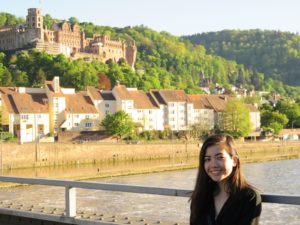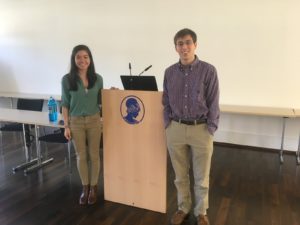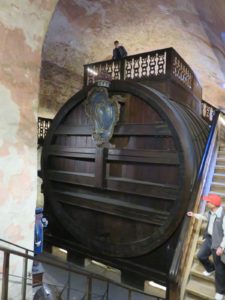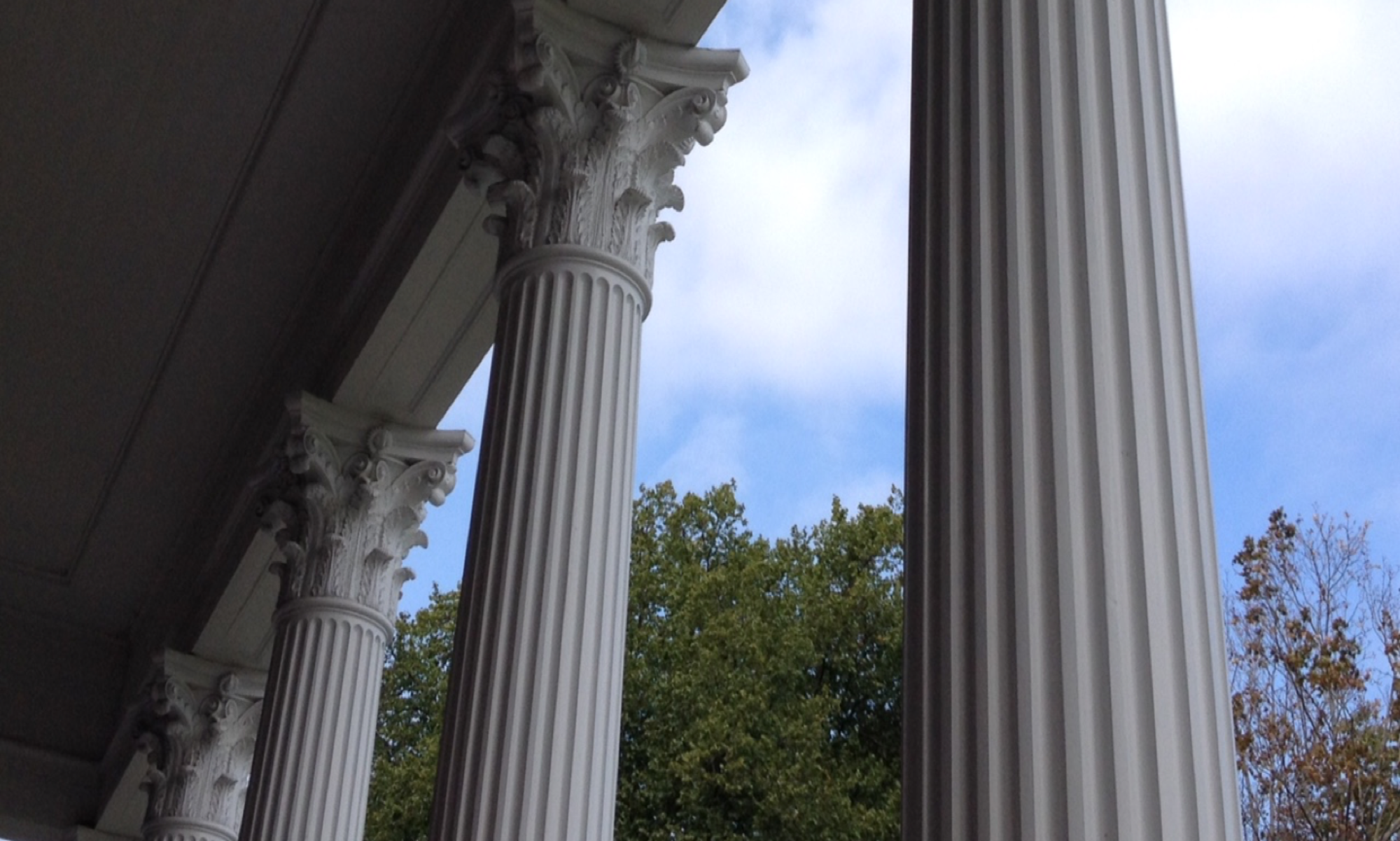By Charlie Schufreider ’17 and Melody Wauke ’17
Hallo!
On May 12 and 13 we had the opportunity to attend “Digital Classics III: Re-thinking Text Analysis,” a conference held at the Heidelberg Academy of Sciences and Humanities in Heidelberg, Germany. For those as uninformed as we were before this trip, Heidelberg is an incredibly beautiful city.

The conference allowed us to present many of the results from our respective senior theses. Melody’s thesis is titled, “Alexandrian editors and the scholia of the Venetus A” while Charlie’s thesis is titled “On the format of the scholia to the Iliad in the Venetus A.”
Both of us were working on applying digital tools in order to analyze patterns of language within the scholia (or scholarly commentary) to the Iliad in the tenth-century Venetus A manuscript. In addition to our research, we also discussed more generally the methodology of the Homer Multitext project. This portion of the talk was prepared and developed by our thesis advisor, Professor Neel Smith; however, he was ultimately unable to attend the conference.
Beyond our own presentation, we were also able to listen to talks from several digital Classicists. From their presentations and the discussions which followed, we learned a great deal about different ways to analyze Classical texts using digital technologies. We were particularly interested by the couple of talks which detailed automated analyzes of the language in Greek tragedy. For example, Francesco Mambrini of the German Archaeological Institute was able to show how the Paedagogus from Sophocles’ tragedy Electra speaks in a manner most similar to the choruses of Sophocles’ plays. (Click here for a link to the full conference program.)

However, attending the conference was only one part of this trip. There was ample time for us to explore the culture and history of Heidelberg. Sausages with sauerkraut were a mainstay of almost every meal, but the real highlight was getting to explore the large Heidelberg Castle along with its gardens. Due to our early morning arrival in the city, the castle was largely devoid of tourists, making the sights all the more enjoyable. The crown jewel of the castle was its surprising collection of increasingly large barrels, the biggest of which is shown below.
In the end, we are extremely thankful to the Ignite Fund for covering the expenses necessary for this trip. We were able not only to visit this incredible city but also to grow more experienced as scholars of Digital Classics.



